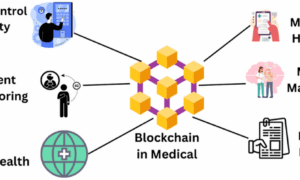Blood pressure problems don’t usually show up out of nowhere. They tend to creep in gradually, pushed along by a mix of lifestyle habits, health conditions, and sometimes even medications. Many people are surprised when they’re told their numbers are too high or too low, but the truth is, our bodies often give clues. We’re just not always paying attention.
Some people look to supplements like Blood Pressure 911 Phytage Labs to support cardiovascular health. While those can be part of a broader wellness plan, it’s important to look at what’s driving the issue in the first place. Knowing what contributes to blood pressure trouble can help you take control before it becomes a more serious concern.
Poor Diet Choices
It might be the most obvious contributor, but it’s also one of the most common. A diet high in sodium, saturated fat, and added sugars increases the risk of developing high blood pressure. Packaged and processed foods such as frozen dinners, canned soups, fast food, and chips are full of hidden salt and fat.
Too much sodium causes your body to hold onto water, which increases the volume of blood your heart has to pump. That means more pressure on your arteries, which isn’t great in the long run. Even if you’re not sprinkling much salt at the table, you’re likely still getting more than your daily recommended limit of 2,300 mg.
Sedentary Lifestyle
Sitting too much does more than just make your back stiff. It is one of the leading causes of poor circulation and weight gain, both of which can mess with blood pressure. When you’re inactive, your heart has to work harder to pump blood. Your blood vessels can stiffen over time.
Exercise helps keep your arteries flexible and your heart strong. Just 30 minutes of moderate activity on most days, like brisk walking, cycling, or swimming, can have a real effect on lowering blood pressure.
Weight Gain
Carrying extra weight, especially around your midsection, puts additional stress on your cardiovascular system. Even a small weight loss of just 5 to 10 pounds can make a meaningful difference in your blood pressure numbers.
The problem isn’t just the number on the scale. Extra fat can increase inflammation in the body and affect how well your kidneys regulate sodium. Both of these can drive blood pressure higher.
Chronic Stress
Stress is another major factor. When you’re stressed, your body produces hormones like adrenaline and cortisol. These hormones raise your heart rate and narrow your blood vessels temporarily, which spikes your blood pressure. Over time, constant stress can lead to long-term issues.
Worse still, many people cope with stress in unhealthy ways. Smoking, drinking, skipping workouts, or overeating can create a feedback loop that makes blood pressure issues harder to manage.
Smoking and Alcohol
Smoking immediately raises your blood pressure and keeps it elevated for some time afterward. Over the years, it damages the lining of your arteries, making them narrower and harder. This contributes to high blood pressure and heart disease.
Alcohol can also raise blood pressure, especially if consumed in large quantities. The occasional drink may not hurt, but regular binge drinking or even nightly glasses of wine can push your numbers up. If you’re drinking more than two drinks per day if you’re a man or more than one drink if you’re a woman, you could be raising your risk.
Sleep Apnea
Not getting good, deep sleep night after night can wreak havoc on your cardiovascular system. Sleep apnea, where breathing repeatedly stops and starts during sleep, has been directly linked to high blood pressure. When your body doesn’t get enough oxygen at night, it triggers stress responses that raise blood pressure and strain the heart.
If you snore loudly, wake up feeling tired despite a full night in bed, or have been told you stop breathing during sleep, talk to a doctor. Treating sleep apnea can significantly reduce blood pressure.
Underlying Medical Conditions
High blood pressure isn’t always caused by lifestyle alone. Certain health conditions, like diabetes, kidney disease, or thyroid disorders, can affect how your body regulates blood flow and hormone balance.
Some medications, like birth control pills, decongestants, or NSAIDs, can also raise your numbers. If your blood pressure seems stubborn or suddenly gets worse, it’s worth reviewing your current medications and health conditions with a doctor.
Family History
Genetics play a role too. If your parents or siblings have high blood pressure, you’re more likely to develop it as well. That doesn’t mean it’s guaranteed, but it does mean you need to be more aware of your choices. Diet, exercise, and stress management become even more important if you’ve got a strong family history.
Caffeine Sensitivity
Caffeine doesn’t affect everyone the same way. Some people can drink espresso and sleep like a baby. Others feel jittery and experience noticeable spikes in blood pressure. If you’re sensitive to caffeine, cutting back on coffee, energy drinks, or some pre-workout supplements might help stabilize your readings.
A study published in the American Journal of Clinical Nutrition found that in hypertensive individuals, caffeine can cause an acute increase in blood pressure for at least three hours. However, longer-term consumption wasn’t shown to significantly impact cardiovascular risk.
Dehydration and Electrolyte Imbalance
Staying hydrated is important, but it’s not just about drinking enough water. The balance between sodium, potassium, calcium, and magnesium plays a huge role in blood pressure regulation. Low potassium levels, for example, can increase the effects of sodium, making it harder for your body to relax blood vessels.
If you’re eating a lot of processed food and not getting enough fruits, vegetables, or legumes, your potassium might be too low. Leafy greens, bananas, beans, and avocados can help bring things back into balance.
Blood pressure issues are usually the result of more than one factor. This is why managing them often means making several small changes instead of relying on a single fix. Start with what you can control such as your diet, activity level, and stress habits. Don’t be afraid to ask your doctor about deeper issues if things still seem off. Blood pressure isn’t just a number. It’s a window into your overall health.

































